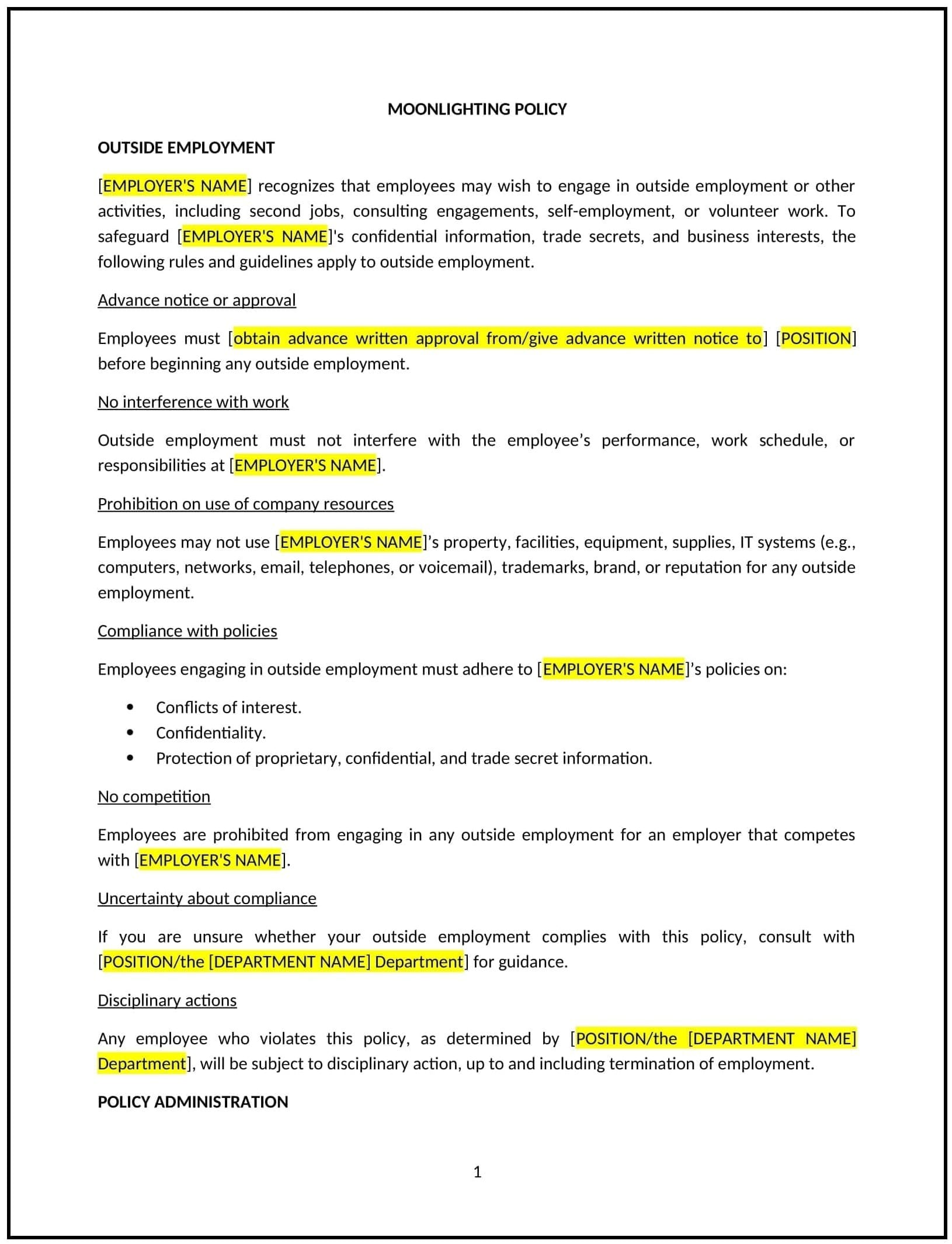Got contracts to review? While you're here for policies, let Cobrief make contract review effortless—start your free review now.

Customize this template for free
Moonlighting policy (Pennsylvania)
This moonlighting policy is designed to help businesses in Pennsylvania establish clear guidelines for employees who work secondary jobs outside of their primary employment. By addressing potential conflicts of interest, time management, and performance expectations, this template ensures that employees can pursue additional work while maintaining their responsibilities and aligning with Pennsylvania labor laws.
By using this template, businesses can promote transparency, protect company interests, and foster a productive work environment.
How to use this moonlighting policy (Pennsylvania)
- Define moonlighting: Clearly explain what constitutes moonlighting, such as holding a second job or freelance work outside of the employee’s primary role.
- Outline approval procedures: Specify whether employees need to disclose or seek approval for secondary employment, including how to submit a request.
- Address conflicts of interest: Provide examples of potential conflicts, such as working for competitors or engaging in activities that affect job performance.
- Include performance expectations: Emphasize that employees must prioritize their primary job responsibilities and maintain performance standards.
- Reflect Pennsylvania-specific considerations: Tailor the policy to align with Pennsylvania labor laws, such as wage and hour requirements or industry-specific concerns.
Benefits of using a moonlighting policy (Pennsylvania)
A well-structured moonlighting policy supports workplace productivity and transparency. Here's how it helps:
- Protects company interests: Prevents conflicts of interest and safeguards sensitive business information.
- Encourages accountability: Ensures employees prioritize their primary job responsibilities.
- Promotes transparency: Encourages open communication between employees and employers regarding secondary employment.
- Reduces risks: Aligns with Pennsylvania labor laws, minimizing potential disputes related to moonlighting.
- Reflects local needs: Addresses Pennsylvania-specific workforce dynamics, such as prevalent industries and job market trends.
Tips for using a moonlighting policy (Pennsylvania)
- Communicate the policy: Share the policy with employees during onboarding or performance reviews to ensure they understand expectations.
- Monitor conflicts of interest: Regularly review disclosed secondary employment to identify and address potential conflicts.
- Support open dialogue: Encourage employees to discuss concerns or questions about moonlighting with their managers or HR.
- Enforce consistently: Apply the policy uniformly across all employees to maintain fairness and avoid perceived favoritism.
- Review periodically: Update the policy to reflect changes in Pennsylvania labor laws, workforce trends, or organizational needs.